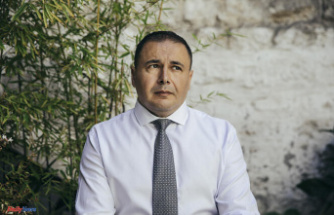There are different allowances for inheritance tax that reduce the tax burden for the surviving dependents. Those who know them can exploit them.
Those who inherit must pay taxes. At least in principle. However, tax allowances protect many an heir from the obligation. The closer the family relationship between the deceased and the heir, the higher the allowances. Under certain conditions, there are even special exemptions for pensions. You should be familiar with four items.
Number 1: The personal allowance
Spouses and registered civil partners, for example, can inherit up to 500,000 euros duty-free. "Children can inherit up to 400,000 euros from each parent without incurring any taxes," says Heidelberg specialist lawyer for inheritance law, Jan Bittler. Grandchildren can inherit tax-free up to 200,000 euros from their grandparents and up to 20,000 euros from siblings, nieces, nephews and partners.
Number 2: The special pension allowance
In addition to the personal allowances, the children and stepchildren as well as spouses or life partners of the deceased are in many cases entitled to a special allowance for pensions. "It amounts to 256,000 euros for spouses or life partners of a deceased person," explains the Bonn specialist lawyer for inheritance and tax law, Eberhard Rott. Depending on their age, the deceased's children can claim a pension allowance of between EUR 10,300 and EUR 52,000.
For children and stepchildren up to the age of five, the special pension allowance is 52,000 euros, between five and ten years 41,000 euros, between 10 and 15 years 30,700 euros, between 15 and 20 years 20,500 euros and between 20 and the completed 27 years of age at 10,300 euros.
What is the special pension allowance? "He has a kind of balancing character," says Rott. On the one hand, many statutory pension payments are not subject to inheritance tax - such as payments from statutory pension insurance, pension payments under civil service law or pension payments from professional pension institutions.
On the other hand, inheritance tax is due on private pension payments made by the deceased - such as benefits from a private life insurance policy or pension claims from the articles of incorporation. In order to reduce this inequality, there is a special pension allowance.
Rott explains this with an example. An entrepreneur who has not made any contributions to the statutory pension insurance for decades, but instead made private provision, has died. His widow can make full use of the special pension contribution for the inheritance because she has to pay inheritance tax on the income from her deceased husband's private provision.
On the other hand, the widow of an employee who had statutory pension insurance has her pension allowance reduced by the capital value of the widow's pension because no inheritance tax is payable on it.
Number 3: Allowance for household effects and other items
In addition to the tax allowances and the special pension allowances, the tax office grants further allowances under certain conditions, which reduce the inheritance tax burden. "An heir or heiress in tax class I receives an allowance of 41,000 euros for household effects, including laundry and clothing," says lawyer Jan Bittler.
There is a further allowance of 12,000 euros for items that are not part of the household effects, such as certain jewelery or works of art. Heirs in tax classes II or III receive a total allowance of 12,000 euros for household effects and objects.
In the case of inheritance tax, tax class I includes married couples and their direct descendants. The associated tax rate has seven levels and is between 7 and 30 percent, depending on the amount of assets. Tax class II for inheritance tax includes siblings, their children, children-in-law and parents-in-law and divorced partners. Here the tax rate increases in seven stages from 15 to 43 percent. All other persons, such as partners or friends, belong in tax class III. Depending on the asset, the tax rate for them is between 30 and 50 percent.
Number 4: The care allowance
And then there is the care allowance. "If, for example, a daughter cared for her father until his death free of charge or for insufficient payment or paid him maintenance, she is entitled to a care allowance of up to 20,000 euros in terms of inheritance tax," says Bittler.












